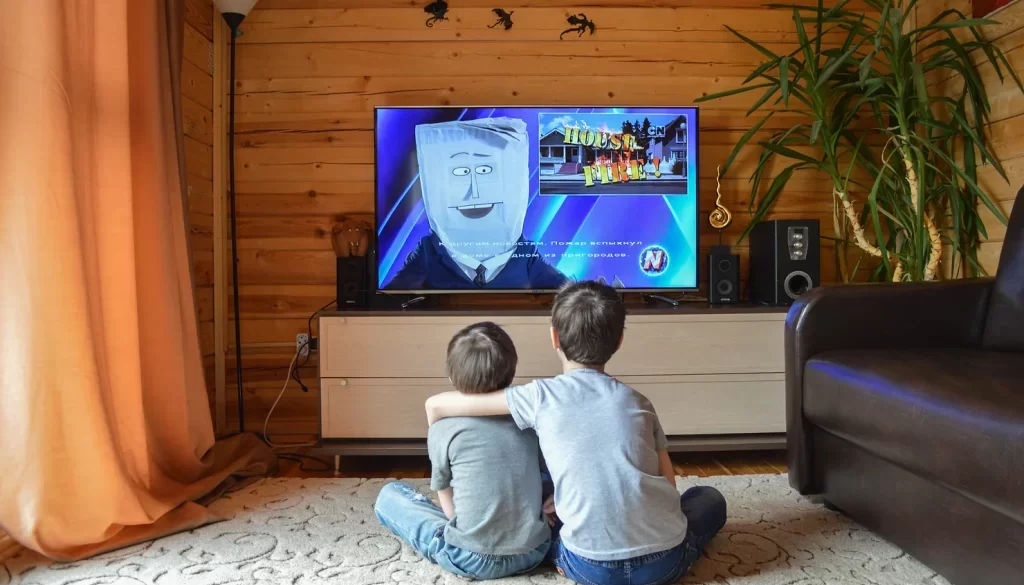Cold Executive Functioning: ADHD traffic control gone haywire

Kids with ADHD often appear scatterbrained. They’re late. They can’t find their things. But they’re also super smart. So what’s going on? Cold executive functioning. Get the lowdown.
Picture you’re at the airport. You work in the traffic control department —incoming Boeing 777. Make way on runway four. Incoming Dreamliner. All clear on runway 6. Prep for takeoff on runway three. Wait, delay on runway seven! RED ALERT. RED ALERT. A collision is about to occur on runway three!!
Suppose we’re not talking about planes. Suppose we’re talking about everyday tasks.
Morning task collision! Heard in ADHD homes across the US
You put on your favorite jean shirt and cotton pants. Brush your teeth. Oh, wait, you forgot to pack your gym jersey. Hey, there’s the missing library book you were looking for, hiding in your closet. Where did you leave off reading? RED ALERT. RED ALERT. Mom’s screaming, “Time to go.” But you still need to finish getting dressed!
We can all agree that running an airport runway is tough. It requires strong mental flexibility. Organizing the details of all flights, planning, and scheduling inbound and outbound traffic. It also requires a solid working memory to monitor simultaneous and unforeseen events. Weather changes? Airplane malfunctions? The airport controller needs to be able to keep many details in mind and compensate or adjust the schedule quickly.
On a much smaller scale, the same skill set is utilized to prepare and get out the door each morning. It’s called executive functioning and can be equally challenging, if not tougher, for a child with ADHD. Executive functioning skills are the mental processes that enable us to hold onto and work with information, filter distractions, and switch gears.
What are cold executive functions?
The scenarios above refer specifically to cold executive or purely cognitive functions. They include our rational, analytical abilities in three areas:
- Working memory
- Planning
- Organizing
Here’s an overview of each area.
1. Working memory. Working memory is our ability to hold and manipulate
information in our minds to carry out tasks. Imagine your child is solving a math problem that involves multiple steps. Working memory allows them to hold and manipulate the relevant information in their mind throughout the process. While a neurotypical child can simultaneously hold 4-5 functions in their working memory, a child with ADHD may only hold 2-3. This makes accommodating new incoming information much harder! You, therefore, might see some of the common ADHD difficulties in your home:
- Entering a room and forgetting why you’re there
- Difficulty following multi-step instructions
- Misplacing daily necessities, like socks, shoes, etc.
2. Organization. Organizing our thoughts and resources and prioritizing tasks to complete our goal. Because ADHD children have added difficulty with organization, it’s often hard for them to:
- Prioritize tasks so that tomorrow’s homework gets done before next week’s report
- Track essential items, like sweatshirts, socks, and shoes,
- Pack for the day, i.e., bring the right school books, lunch, a coat, etc.
3. Planning. Planning refers to our ability to consider many details and circumstances and combine them into a plan (long or short-term). Planning requires more brain connections and networks than other cognitive tasks and is particularly difficult for children with ADHD. It also requires an inherent sense of time, which ADHD children struggle with. It’s hard for them to:
- Estimate how long a task takes, i.e., I’ll take the dog for a quick walk. BRB
- Finish tasks on time without getting distracted or delayed
- Plan how to spend a bunch of free time, i.e., figure out what to do after school
So where does that leave me as a parent?
If there’s one takeaway you should walk away with, it’s that it’s not your child’s fault. They aren’t being careless or not listening. Their brain is wired differently. Unfortunately, there is no quick fix. But there are many ways you can support your child. By using helpful memory strategies and accommodations, kids with ADHD can overcome challenges and improve their short-term memory abilities. That’s what Pery is here for. Navigating the daily challenges, avoiding the common ADHD pitfalls, and guiding you as you go.
Check out the many articles we’ve written on cold and hot executive functions for practical tips and how-to’s.
Summary:
- Cold executive functioning refers to our cognitive ability to hold onto and work with information, filter out distractions, and switch gears.
- Children with ADHD have increased difficulty in these areas because their brains are wired differently.
- If your child has difficulty with their cold executive functioning, they’re not doing it to be difficult. They need your help growing that skill. As a parent, you’re just the right person to help.



